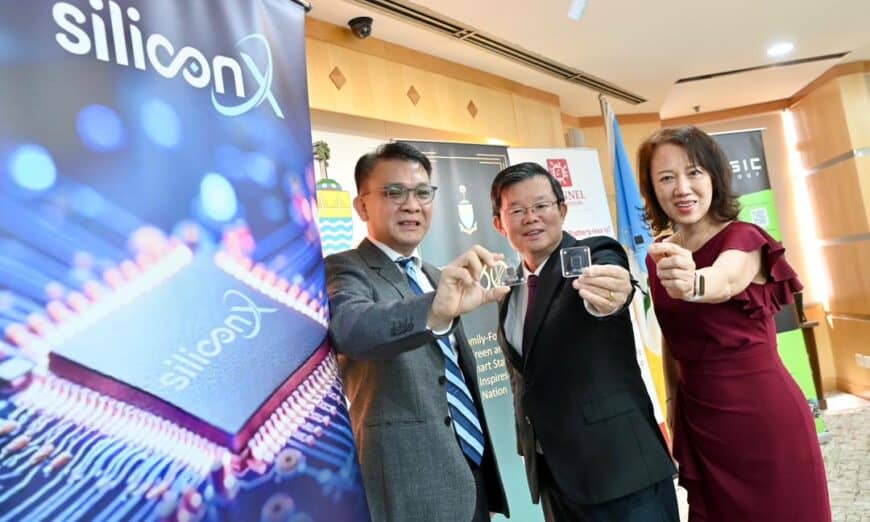Penang-based startup company Silicon X Sdn Bhd (Silicon X) has made the state proud with its historic achievement of successfully developing and powering on its proprietary Field Programmable Gate Array (FPGA) chip.
Silicon X is one of the Silicon Research & Incubation Space’s incubatees under the Penang Silicon Design @5km+ (PSD@5km+) initiative.
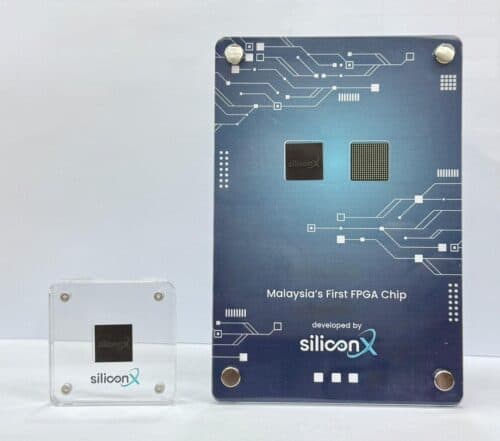
This breakthrough positions Silicon X as the first FPGA product company in Malaysia and Southeast Asia, further reinforcing Penang’s drive for ‘Made by Malaysia’ chip and cementing its reputation as a leading global semiconductor hub.
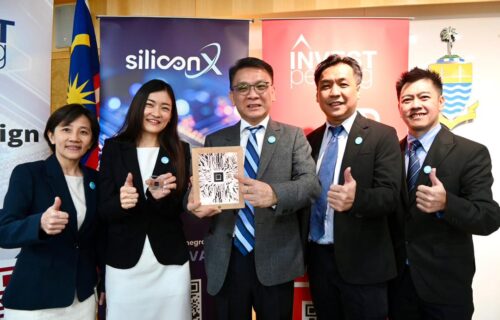
Founded in 2024 with the vision of building world-class semiconductors on Malaysian soil, Silicon X embodies the strength of local innovation and engineering excellence.
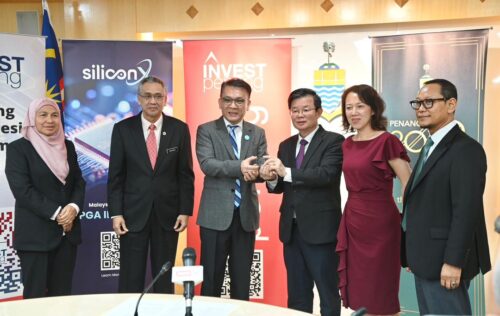
From a determined team of engineers challenging global boundaries, the company has rapidly advanced to design, develop, and now validate Malaysia’s first home-grown FPGA.
Silicon-X managing director Ng Meng Wah said Silicon X’s entry into the FPGA space stems from the growing global demand for reconfigurable, high-performance, and energy-efficient chips that can adapt to rapidly evolving applications.
“Unlike conventional processors, FPGAs offer unparalleled flexibility for industries that require real-time adaptability and low-latency performance.
“By building this capability locally, Silicon X aims to reduce reliance on imported technologies, close critical gaps in Malaysia’s semiconductor value chain, and provide a competitive edge for local and regional industries.
“With high-performance, scalable, and energy-efficient hardware and software designed entirely in-house, Silicon X’s FPGA solutions are poised to accelerate digital transformation across key industries including artificial intelligence, robotic, telecommunication, data center, healthcare, automotive, and industrial automation,” he told a press conference in Komtar today.
Also present were Chief Minister Chow Kon Yeow, Penang State Secretary Datuk Seri Zulkifli Long, Penang Financial Officer Datuk Zabidah Safar, InvestPenang chief executive officer Datuk Loo Lee Lian, Penang Development Corporation (PDC) chief executive officer Datuk Aziz Bakar, PSD@5km+ advisory panel J-Wing Teh, Channel Microsystems founder and chief executive officer Balasubramaniam Shammugasamy and Tenasic Technology chief executive officer Ong Chin Hu.
Ng added that this is a major milestone for the company.
“Our chip is now being validating, and we are perfecting the chips before the mass production.
“So, we expect to go for the mass production in the first half of next year. We have engaged a few customers and in advanced discussion with them. They are from Japan, China and local company.
“We will make necessary announcements once we have seal the deal for the mass productions,” he said.
When asked about the expected revenue, Ng replied that in the typical life cycle of an FPGA chip, the life cycle is about eight years.
“So, the revenue that generated from this first chip for the next eight years is about RM200 to RM300 million,” he revealed.
Meanwhile, Chow congratulated Silicon X for this significant milestone.
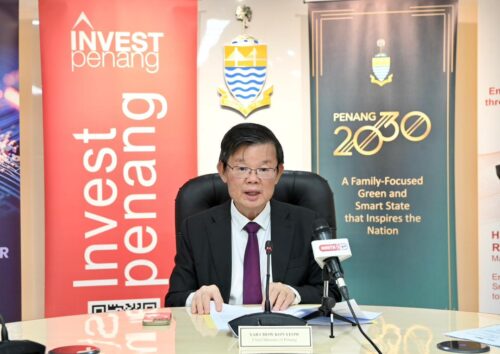
“Silicon X, one of the incubatees under PSD@5KM+, has successfully designed and powered-on its proprietary FPGA chip.
“This achievement marks the first FPGA chip developed in Malaysia, and the first in Southeast Asia.
“Penang is proud to host innovators such as Silicon X. This is a historic moment for Malaysia and the region.
“It proves that we have the capability to create our own high-end semiconductor products, and PSD@5KM+ is instrumental in making this possible.
“This milestone also reflects the tangible impact of the PSD@5KM+ initiative in building Malaysia’s capabilities to compete globally in programmable logic solutions, while cultivating home-grown talent and elevating the nation’s role in the international semiconductor ecosystem,” said Chow.
Chow also announced that two new local integrated circuit (IC) design companies, namely Tenasic Technology and Channel Microsystems, will be joining the Silicon Research & Incubation Space as the second batch of incubatees.
“They will receive the same comprehensive support as the inaugural batch, including rental and utilities subsidies as well as access to Multi-Project Wafer (MPW) services, testing facilities and talent development support.
“The PSD@5KM+ initiative continues to deliver tangible outcomes that move Penang and Malaysia further up the semiconductor value chain, in alignment with the National Semiconductor Strategy and the New Industrial Master Plan 2030,” Chow noted.
He also expressed appreciation to the Federal Government, especially the Ministry of Economy and Ministry of Investment, Trade, and Industry (Miti), for their confidence in Penang’s capabilities and for their support in strengthening Malaysia’s semiconductor future.
Looking ahead, Chow reiterated that PSD@5KM+ will continue nurturing and scaling more early-stage startups, to develop the next generation of Malaysian IC design companies within the next three to five years.
“My heartiest congratulations to Silicon X for this remarkable milestone, and to Tenasic Technology and Channel Microsystems for joining us under the PSD@5KM+ initiative.
“With strong government-industry collaboration, Penang will continue to lead Malaysia’s next technological leap and drive the innovation that will define our nation’s future,” he said.
Story by Riadz Akmal
Pix by Alissala Thian
Video by Noor Siti Nabilah Noorazis

